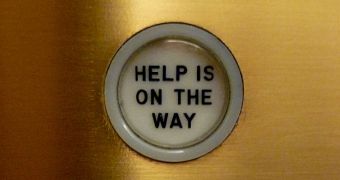A new scientific investigation has recently established that people who watch others engage in positive behaviors, altruistic gestures, and other types of compassion and good will, are also more likely to engage in similar gestures as well. The research demonstrated that women who watched an inspirational moment on the Oprah Winfrey Show were likely to have nicer attitudes to others, and to be more altruistic. It was also determined that after people notice others doing good deeds, they are very likely to dedicate more time to doing the same thing than they would otherwise, LiveScience reports.
The investigators admitted, however, that the research may not hold value when applied to the masses, as it was conducted on a small sample of women. The team says that they were curious to create the new study simply because many people report feeling inspired when watching others do a good deed. Now, they looked at whether we truly are inclined to be more altruistic upon seeing others behave the same or not. In the experiments, 30 students were asked to watch an uplifting Oprah video clip, whereas 30 others were played a nature documentary. This was done so that neutral feelings were elicited in the second group.
The test participants were told that they were attending a memory investigation. They were asked to write down as much as they remembered about the video clips they had watched, and where paid for their participation. Then, they were invited to participate in a follow-up, unpaid study. About 69 percent of the students in the group that watched Oprah agreed to do so, whereas only 40 percent of those that watched the nature documentaries agreed to do the same. Full details of the study appear in the January 29 issue of the respected scientific journal Psychological Science.
In a second experiment, 35 participants were asked to watch either the Oprah clip, the nature videos, or a short sequence of British comedy. At the end, the women were asked to complete a questionnaire, but the researcher that was with them in the room pretended she couldn't open the file that held the questions. The experts then asked the test subjects if they would help out by completing a related questionnaire, for another study. More women from the group that watched Oprah consented, and, when timed, were proven to spend twice as much time as the women from the other group with the questions – in turn helping the researcher.

 14 DAY TRIAL //
14 DAY TRIAL //